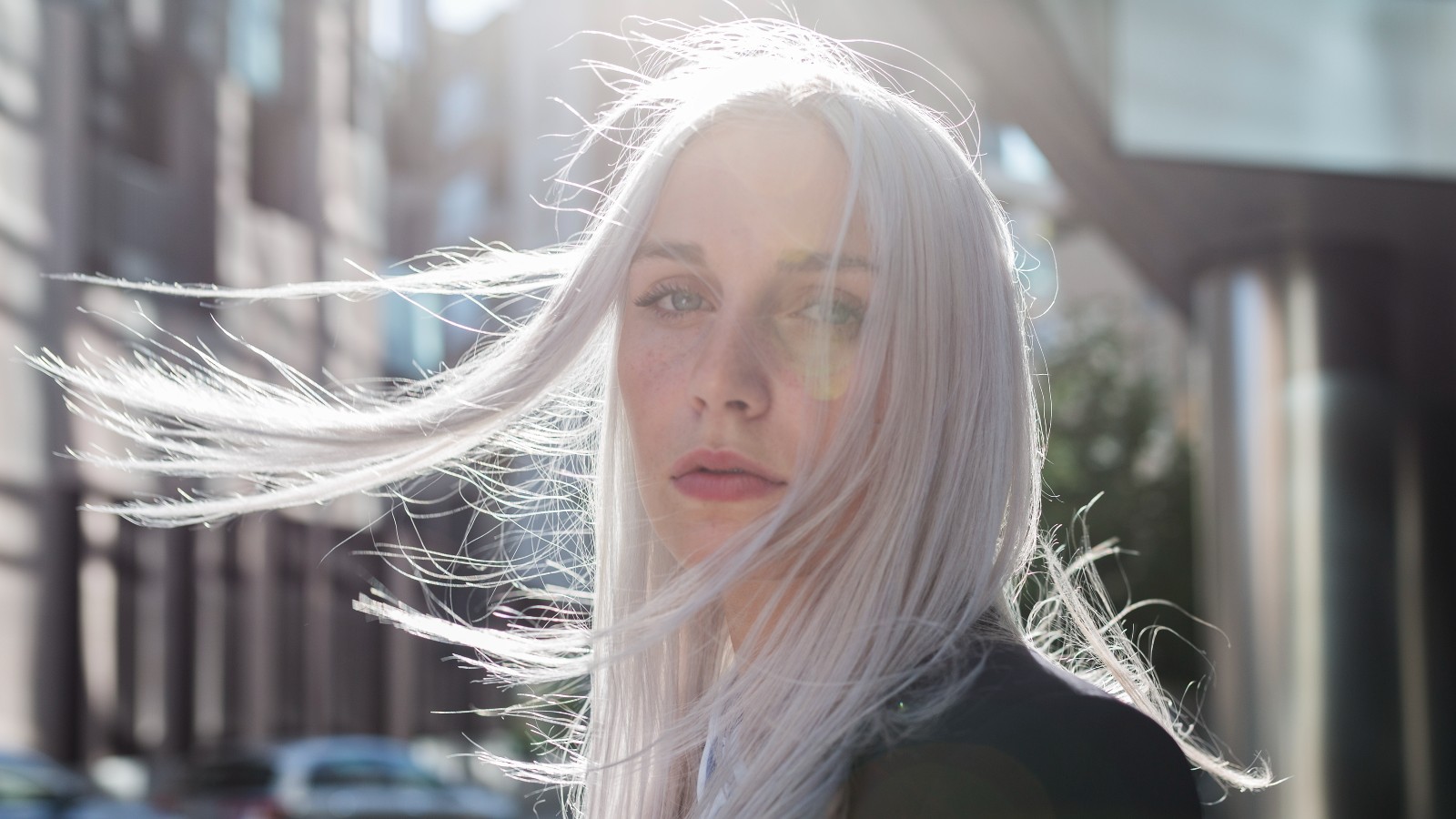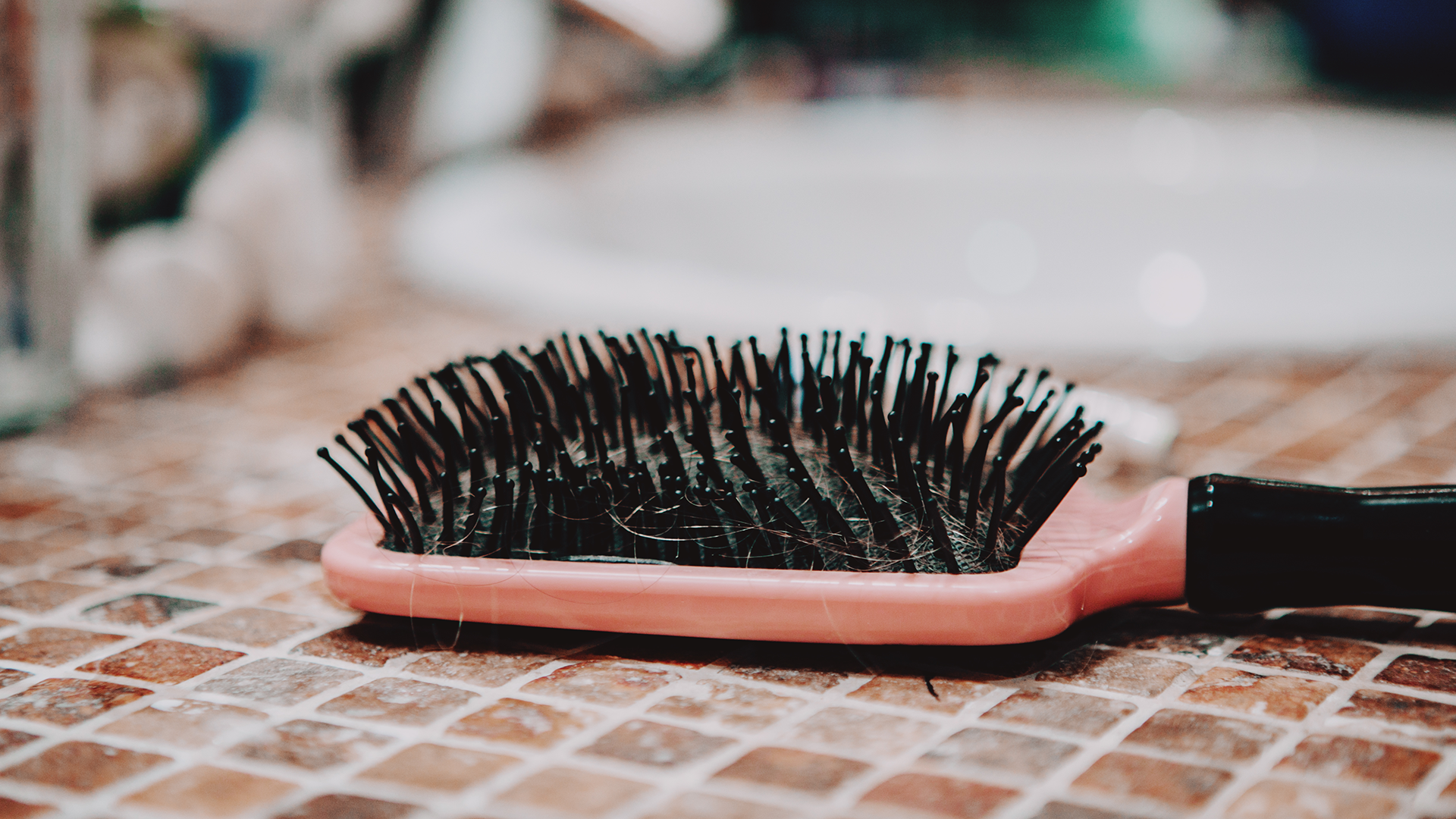Hair loss after COVID-19—why it happens and what to do about it
One-third of COVID-19 patients experience hair loss after recovery, according to researchers


If you’re wondering if hair loss after COVID-19 is normal, you’re certainly not the only one. While vaccines have ensured that some of the most difficult elements of the pandemic are behind us, the virus is still around and with more infections comes more cases of this troubling side-effect.
Alongside an ongoing loss of taste or smell and feelings of being tired all the time, losing hair to some degree has been one of the most commonly reported effects of COVID-19 infection. 1 in 3 are thought to be affected long after they've started testing negative, data from the University of Washington reveals, and celebrities like Alyssa Milano and Khloe Kardashian are among the millions of sufferers sharing their stories online.
The unpleasant symptom manifests differently depending on the individual, causing thinning hair in some and causing others to lose larger clumps, but all cases seem to have one thing in common - they occur up to three months after other symptoms have disappeared.
Why does COVID-19 cause hair loss?
COVID-19 causes hair loss due to the stress that the respiratory virus puts on the body. A study from the University of Baghdad conducted last year noted that COVID-19 infection was a significant cause of telogen effluvium (TE), a stress-related condition that’s characterized by a change in the number of hair follicles.
TE normally develops after a physically or mentally changing experience, such as a severe infection or a traumatic event. With Covid-19 inflicting major stress on the body as its proteins latch onto healthy cells in the lungs especially, it’s no surprise it’s been identified as a key cause of the condition.
“Fever is a common symptom of COVID-19 and a few months after having a high fever, many people see noticeable hair loss," superintendent pharmacist Navin Khosla at FromMars explains. "This is actually hair shedding, otherwise known as telogen effluvium. It happens when more hairs than normal enter the shedding phase (telogen) of the hair growth cycle.”
While studies have shown that overall stress will contribute to the shedding, Khosla highlights that it’s the fever symptom of COVID-19 that will impact shedding rate the most. “A fever of illness can cause this shedding,” he says. “It usually happens two to three months after the fever and can last for six to nine months.”
Sign up to our free daily email for the latest royal and entertainment news, interesting opinion, expert advice on styling and beauty trends, and no-nonsense guides to the health and wellness questions you want answered.
Earlier research from Brown University on the subject indicated that the risk was most significant for those who experienced a particularly severe case of the disease. However, the same research from the University of Baghdad found that both male and female patients who had mild symptoms or moderate disease experienced a loss of 35% of their hair. It's a startling finding that suggests TE is likely to be more significant in the causes of hair loss in those who’ve had COVID-19 than many people thought.

Is hair loss permanent?
No, hair loss as a result of COVID-19 infection will likely only be temporary. For most people, hair will start spouting back six months after recovery.
“Shedding will most probably be a temporary issue and although you won’t permanently lose any hair, it can be very frightening to experience and is stressful to see,” Eva Proudman MIT IAT, from the Institute of Trichologists, told woman&home.
However, pharmacist Navin Khosla adds, you’ll need to make sure that your stress levels return to normal post-infection to guarantee a full recovery. “The hair loss related to stress will depend on your levels of stress being reduced,” he says. Learning how to deal with stress in day-to-day life is an important part of this.
Treatment for hair loss after COVID-19
When it comes to telogen effluvium, our experts say the best thing to do is give it time as hair growth tends to go back to normal on its own following a fever or illness. It may be difficult to deal with, the American Academy of Dermatology Association says, but most people see their hair grow back within six to nine months after full recovery.
In the meantime, focusing on ensuring you're getting healthy amounts of vitamins and minerals in your diet should be a priority - especially plenty of vitamin D. "Being inside doesn’t cause more hair loss, but what it does do is restrict access to sunlight and the intake of vitamin D," says trichologist Proudman.
We've seen the benefits of vitamin D throughout the pandemic but in this case it's especially important. "The hair follicle has a vitamin D receptor which, in simple terms, stimulates hair growth. If your vitamin D is low or deficient the hair can shed excessively."
While some medical treatments for telogen effluvium and hair loss more generally are available, including minoxidil, they're recommended for those with hereditary hair loss rather than hair loss due to illness. Side effects, which include dizziness and altered blood pressure according to a study by Mahidol University, may also impact those still recovering from COVID-19.
When considering any new medical treatment, it's best to seek advice from your doctor first.

Hailing from the lovely city of Dublin, Emma mainly covers the Royal Family and the entertainment world, as well as the occasional health and wellness feature. Always up for a good conversation, she has a passion for interviewing everyone from A-list celebrities to the local GP - or just about anyone who will chat to her, really.
Emma holds an MA in International Journalism from City, University of London, and a BA in English Literature from Trinity College Dublin.